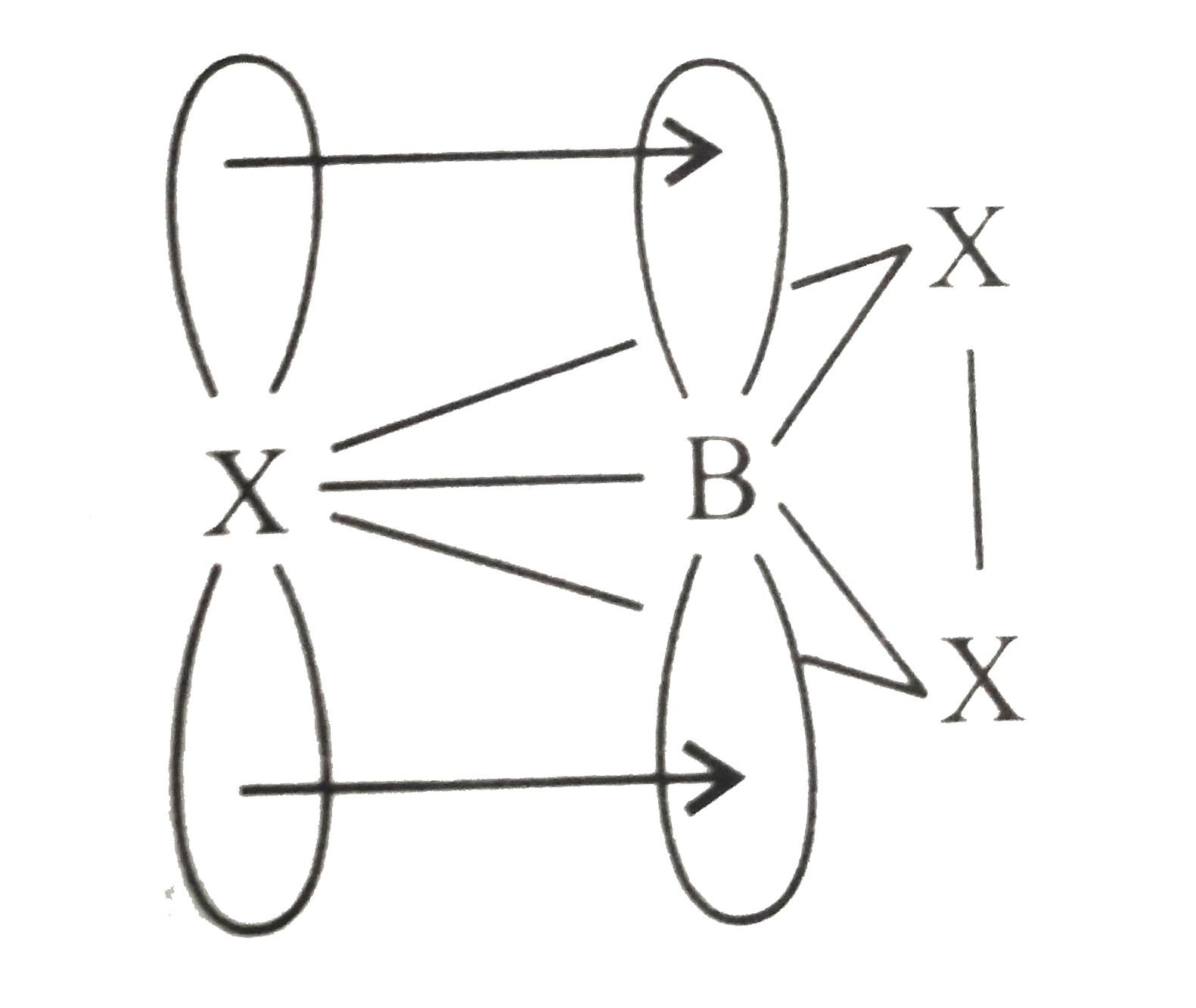Explain the following :
(a) Boron has high melting and boiling points.
(b) The pπ−pπ back bonding occurs in the halides of boron and not in those of aluminimum.
( c) Boron and aluminium halides behave as Lewis acids.
(d) Aluminium forms [AlF6]3− ion, but boron does not form [BF6]3− ion.
Video Solution
Text Solution
(a) Boron has gaint covalent polymeric structure both in solid and liquid states, thus it has high melting and boiling points.
(b) The formation of pπ−pπ back bonding involves donation of an electron pair from the filled orbital of the atom forming a 'σ' bond with the central atom. The tendency to show back bonding depends on the size of the atoms involved. The tendency decreases as the size of the central atom increases. Since boron has smaller size as compared to aluminium, back bonding is more feasible in boron halides as copared to aluminium.

( c) Both boron and aluminium in their halides possess six electrons in their valence shell. Because these are short of two electrons to complete their octet and thus behave as electron-deficient compouds. They can easily accepy a pair of electron frm a donar ion//molecule and thus behave as Lewis acid.
(d) Due to the absence of low-lying vacant d-orbitals in boron, it cannot expand its coordination number beyond four and thus boron does not form [BF6]3− ion. On the other hand, aluminium due to the presence of vacant d-orbitals in valence shell can expand its coordination number beyond 4(up→6) and thus easily from [AlF6]3− ion.
|
Topper's Solved these Questions
- P-BLOCK GROUP 13 - BORON FAMILYBOOK - CENGAGE CHEMISTRYCHAPTER - P-BLOCK GROUP 13 - BORON FAMILYEXERCISE - Solved Examples
16 Videos
- P-BLOCK GROUP 13 - BORON FAMILYBOOK - CENGAGE CHEMISTRYCHAPTER - P-BLOCK GROUP 13 - BORON FAMILYEXERCISE - Ex 6.1 (Subjective)
17 Videos
- ORGANIC REACTION MECHANISMBOOK - CENGAGE CHEMISTRYCHAPTER - ORGANIC REACTION MECHANISMEXERCISE - Analytical and Descriptive
6 Videos
- P-BLOCK GROUP 14 - CARBON FAMILYBOOK - CENGAGE CHEMISTRYCHAPTER - P-BLOCK GROUP 14 - CARBON FAMILYEXERCISE - Exercises Archives (Subjective)
9 Videos
Similar Questions
Knowledge Check
Aluminium forms [AIF6]3− ion but boron does not form [BF6]3− ion. Explain.
AThe atomic size of B is smallBOf absence of d-orbital in B atomCOf high I.P B-atomDB is non -metalBoron does not form B3+ ion, due to.
AEnergy required to form B3+ ion is very high which will not be compensated by lattice enthalpies or hydration enthalpies of such ion.BBoron is a non-metalCBoron is a metalloidDNone of the aboveBoron does not form B3+ ions because
Aboron has small size and high ionization energyBboron has high electronegativityCboron has high charge densityDNone of these
Aluminium forms AlF3−6 but boron does not form BF3−6. Why so ?
View SolutionWhy boron does not form B3+ ion?
View SolutionExplain the following
(a) Gallium has higher ionisation enthalpy than aluminium
(b) Boron does not exist as B3+ ion
(c) Aluminium forms [AlF6]3− ion but boron does not form [BF6]3− ion.
View SolutionWhy boron does not form B3+ ion?
View SolutionBoron does not form B3+ ions because
View Solution
